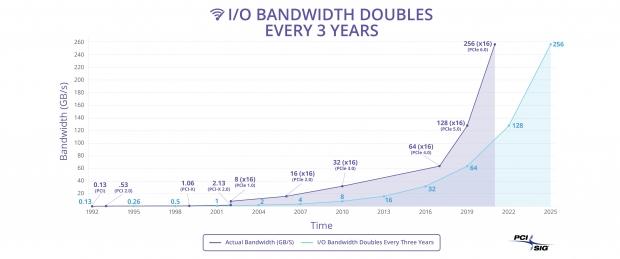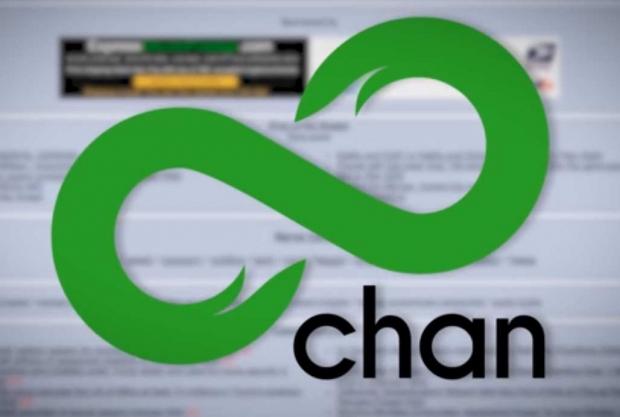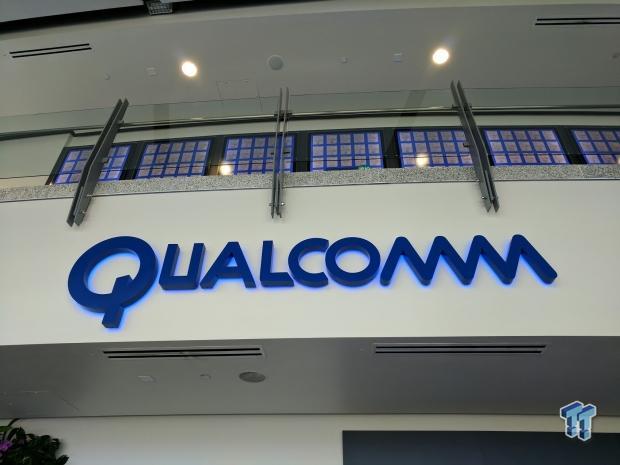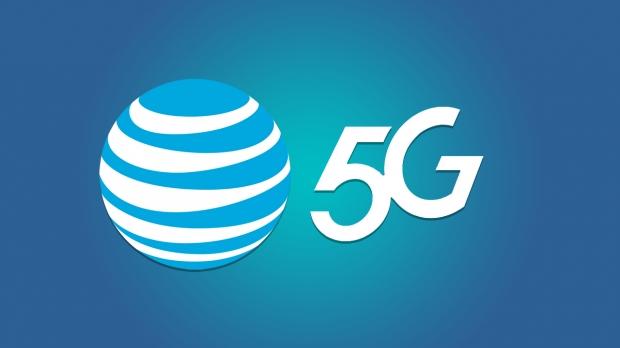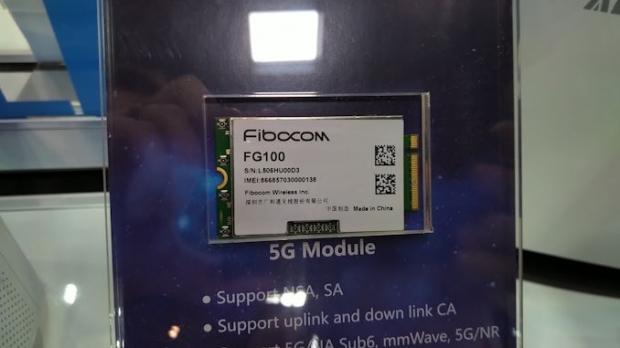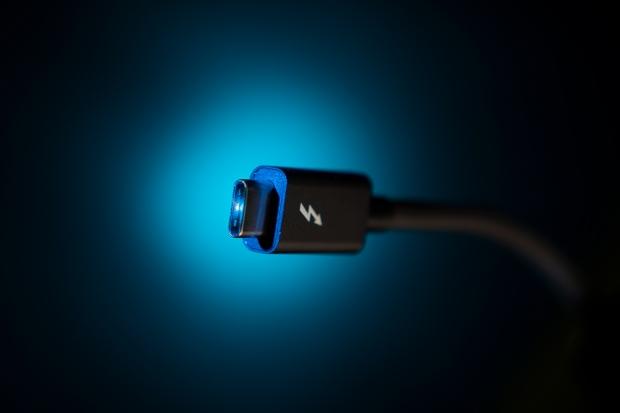Connectivity & Cloud - Page 12
The latest and most important Connectivity & Cloud news - Page 12.
PCI Express 6.0 spec reaches rev 0.3, final due in 2021, up to 256GB/s
While it is still a while before we would ever see this on a consumer-level system, it is worth noting that PCI-SIG has announced PCIe 6.0 is already at Rev 0.3.
PCIe 4.0 is just now showing its face on consumer-based systems, and that is after a very long runway for PCIe 3.0 spec. PCI-SIG wants to avoid the kind of long delay like we saw with PCIe 3.0 to 4.0. Many of you may ask why, as modern gaming systems barely can see a benefit from PCIe 4.0 as it is. Well, PCIe, which works excellent for GPUs and now SSD's interface, is used for far more bandwidth-intensive systems such as HPC clusters or large supercomputers. This is where the new spec will be the most needed.
The 6.0 spec should be complete by 2021, according to PCI-SIG, as long as everything goes well. But that does not mean that consumer boards will suddenly be at PCIe 6.0, this all takes time. Sometimes generations of products are needed to get I/O hubs sorted and interfaces laid out to support not just the speed but signal integrity concerns.
Continue reading: PCI Express 6.0 spec reaches rev 0.3, final due in 2021, up to 256GB/s (full post)
USB4 is pretty much Thunderbolt 3, except it's called USB4, okay?!
The USB Implementers Forum (USB-IF) announced today that the final technical specifications for USB4 are here, with the first USB4 products to arrive in late-2020.
USB4 ushers in dual-lane 40Gbps speeds which equal the dizzying heights of Thunderbolt 3, and double what USB 3.2 offered. USB4 will continue making our lives easier taking in the USB Type-C standard, and will be fully backwards compatible with USB 3.2, USB 2.0, and even Thunderbolt 3.
The new USB4 standard will tackle both data and display connectivity, which means we should (hopefully) see a future of more USB4-powered displays. USB3 was alright, but the transfer speeds didn't match Thunderbolt 3 which became important for content creators and enthusiasts who craved, and actually needed, all that speed.
Continue reading: USB4 is pretty much Thunderbolt 3, except it's called USB4, okay?! (full post)
Cloudfare remove its 8Chan security after El Paso shooting
The El Paso shooting that happened over the weekend truly rocked the world as at least 20 people were killed in what has been called a 'White Nationalist' hate crime.
8Chan has been targeted by people around the globe and deemed a 'hate' spreading website and a means of a megaphone for the gunman who shot dead at least 20 innocent people in El Paso, Texas. The gunman openly said on 8Chan that "In general, I support the Christchurch shooter and his manifesto." After the events of El Paso, the decision by Matthew Prince, co-founder and CEO of Cloudflare is to remove their security protection services to the website which would ultimately render 8Chan vulnerable to DDoS attacks (distributed denial of service).
Cloudfare has removed their services to 8Chan to seperate themselves from the tragic events of El Paso. At the moment it is unclear whether or not 8Chan will acquire a new security service to protect the website, or if any security service is willing to step up to the plate and take the heat. 8Chan's founder surprisingly thanked Cloudfare for their separation, saying "Finally this nightmare may have an end." In conclusion, Prince says "Unfortunately the action we take today won't fix hate online. It will almost certainly not even remove 8chan from the Internet. But it is the right thing to do."
Continue reading: Cloudfare remove its 8Chan security after El Paso shooting (full post)
US wants 5G hardware designed, made OUTSIDE of China
Huawei isn't the only one in trouble when it comes to 5G technology and its various troubles over the last dew months, as the Trump administration is reportedly looking into requiring 5G hardware and products being designed, and made outside of China.
The Wall Street Journal is reporting the story, adding fuel to the fire by writing the move could "reshape global manufacturing and further fan tensions between the countries". A recent executive order from the White House saw restrictions put in place to restrict some networking hardware and services from other countries coming into, and being available in the US.
All of the concerns of cybersecurity in the US led to a huge 150-day review of the entire US telecommunications supply chain, with one part of that seeing US officials asking telco-equipment manufacturers if they can design and produce the hardware and software that is coming into the US, outside of China. Right now, the US is the epicenter of technology, but no major telecommunications equipment is made in the United States. Most of it, is made in China.
Continue reading: US wants 5G hardware designed, made OUTSIDE of China (full post)
Intel loses iPhone 5G to Qualcomm, now selling modem biz
It was barely a week ago that Qualcomm and Apple kissed and made up over 5G chips in future 5G-capable iPhones, with Qualcomm pushing Intel out of the deal and now the chip giant is selling its entire modem business.
Intel selling its entire modem business is big news, with sources of The Wall Street Journal stating Apple is a potential buyer, but there are others that have their hat in the ring for Intel's modem business. Apple buying Intel's modem business isn't something that is new, either, as the company stopped when Qualcomm and Apple worked everything out.
Intel will reportedly have 5G modems next year but it really doesn't matter as Qualcomm is already dominating the 5G market with 5G-capable Snapdragon chips in phones and other devices already.
Continue reading: Intel loses iPhone 5G to Qualcomm, now selling modem biz (full post)
Apple secures multi-year 5G modem deal with Qualcomm
It was getting pretty hairy there for Apple and the future of the iPhone as Intel couldn't muster up anything but smoke and mirrors with its 5G modems, and now that future is secured thanks to Qualcomm.
Qualcomm and Apple have agreed to settle all of their ongoing lawsuits, which puts a bookend at the end of a lengthy slew of lawsuits that spanned the world across multiple countries. Apple has agreed to pay an undisclosed amount of money to Qualcomm, with a new 6-year global patent licensing agreement, with the option to extend it by another two years.
Apple hasn't been able to offer industry-leading LTE performance from its last few generations of iPhones, and it would've been multiple years behind if it had not secured a deal with the leader in 5G: Qualcomm. Qualcomm would've known this was going to happen and just had to play the long game, waiting patiently and now here we are. Qualcomm 5G technology will be inside of future Apple products, and that's a good thing for everyone involved.
Continue reading: Apple secures multi-year 5G modem deal with Qualcomm (full post)
5G isn't just for smartphones, it's also for MILKING COWS
I'm sure you thought that was a click bait headline and I really wish it was, but it is not. It's the reality we live in today, with a British farm trialling 5G-connected cows. Yes, you read that right - 5G-connected cows will be milked in this trial.
Reuters is reporting that the government-funded Agricultural Engineering Precision Innovation Centre (Agri-EPI Centre) in Shepton Mallet, in southwest England. The farm will see 50 or so of the 180 herd fitted with 5G smart collars and health-monitoring ear tags.
Duncan Forbes, the Project Manager at the Agri-Epi Centre explained: "We are testing the ability of 5G to transmit the data from our sensors much quicker, and not via farm's PC and slow broadband internet connection. And the significance of that is it means that this sort of technology could be taken up... not just on farms but on rural communities right across the country".
Continue reading: 5G isn't just for smartphones, it's also for MILKING COWS (full post)
AT&T the first carrier in the US over the 1Gbps line on 5G
5G smartphones will be here later this year with Qualcomm paving the way to 5G dominance with its Snapdragon family of products to roll out throughout 2019 that will power the next wave of devices. But what about the 5G roll out in the US?
AT&T has now declared that it is the first US-based telco to hit 1Gbps speeds on a 5G network, something the carrier did in "multiple cities" on the Netgear Nighthawk 5G mobile hotspot. The 5G testing is happening by invitation in 12 cities across the US, with AT&T's SVP of wireless technology Igal Ebaz, telling PCMag in an exclusive interview: "It was just the evolution of the standards and the capabilities. The software had to evolve across all of the ecosystem".
This is obviously just a test but 5G speeds on Qualcomm's new Snapdragon 8cx processor will reach a dizzying 7Gbps, which will deliver over 800MB/sec of speed to your smartphone or Windows-based device. Even if you're getting 1Gbps that is a huge increase over the speeds that 4G, something that AT&T will only boost when it flicks the switch that will combine LTE and 5G into a single connection.
Continue reading: AT&T the first carrier in the US over the 1Gbps line on 5G (full post)
Intel and Qualcomm working on 5G modules for M.2 slots
We know that the world of 5G begins this year with an unlimited marketing train starting with 5G leader Qualcomm, but both Qualcomm and Intel were teasing 5G modules for M.2 slots at Mobile World Congress 2019, an interesting move for 5G adoption.
Fibocom was showing off its FG100 module at MWC 2019, a new M.2 module that packs the Intel XMM8160 5G modem that will make its way into new PCs and laptops. AnandTech also saw a "similar M.2 module" that used the Qualcomm Snapdragon X55 modem, and was on display at the Qualcomm booth at MWC 2019. The new 5G modules are on the widest M.2 standard which is 30mm wide, and as AT notes is "8mm wider than the storage based drives we normally see in this form factor". The Fibocom FG100 has support for both NSA and SA networks, and 5G in mmWave bands and sub 6GHz, too.
We're looking at up 2.4Gbps of LTE download speeds using LTE, up to 4Gbps using sub-6GHz, and up to 6Gbps on mmWave. Upload speeds aren't too far off with up to 450Mbps on LTE, around 2.5Gbps on sub-6, and up to 3Gbps on mmWave.
Continue reading: Intel and Qualcomm working on 5G modules for M.2 slots (full post)
USB Promoter Group announces next-gen USB4 specification
If you weren't already confused about USB and its last moves with the USB 3.2 standard then buckle up, because things are about to get more confusing. The USB Promoter Group, which is the standards body of the USB specification, has announced the new USB4 standard.
The new USB4 standard will be fully detailed in the coming months, but for now we know there will be a doubling in bandwidth from 20Gbps over USB 3.2 Gen 2x2 to a huge 40Gbps under USB4. USB4 will rid itself of the Type-A connector and move into the world of USB-C which will unify things on top of pumping a huge 40Gbps of bandwidth around.
The slightly confusing part is that USB4 is not just a new standard, but it is a new speed and connection standard.
Continue reading: USB Promoter Group announces next-gen USB4 specification (full post)


